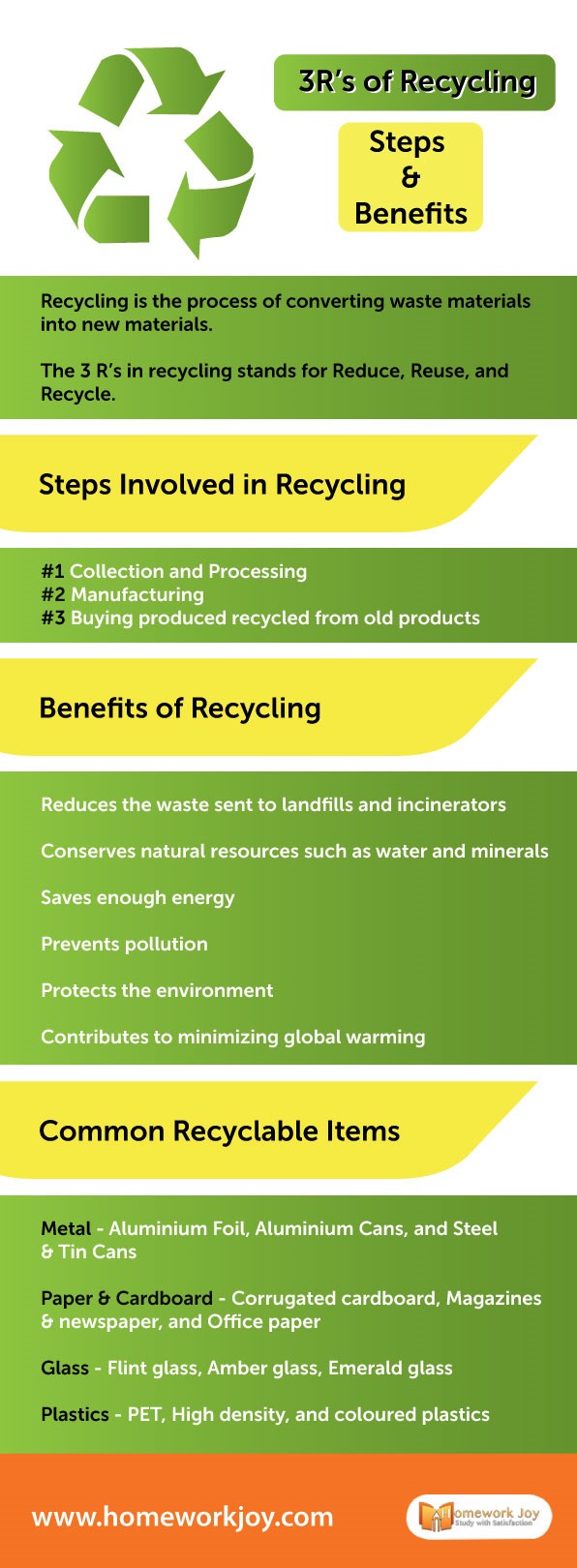Recycling is the method of converting waste into new materials. There are various benefits of recycling. Moreover, new technologies make even more recyclable materials. And with everyone’s help, we can make our planet Earth clean. Recycling is not only beneficial for the environment but also has a positive effect on the economy. Recycling and its products are reported throughout human history but have come a long way since Plato’s time. Humans used to reuse broken tools and pottery when materials were scarce.
The 3 R’s in recycling stands for Reduce, Reuse, and Recycle.
Steps Involved in Recycling Materials
Recycling materials involves three steps. These are
1. Collection and Processing
There are several ways to collect recyclables. It includes the curbside collection, drop-off centers, and refund programs. After collecting recyclables, it is sent to a recovery facility to be sorted. So that the materials can be used in manufacturing. Recyclable materials are brought and sold where prices vary. It depends on the supply and demand in the United States in the world.
2. Manufacturing
Nowadays, products are being manufactured with recyclable materials. There are a number of household items that consist of recyclable materials. Some of them are as follows:
- Steel cans
- Newspaper
- Paper towels
- Aluminum plastic
- Plastic laundry detergent bottles
3. Buying produced recycled from old products.
Buying new products made from recycled materials helps in closing the recycling loop. There are a number of products that consist of recycled content. It is beneficial if you look for the recycled content or the products with the recycled content.
Benefits of Recycling
The benefits of recycling are far-reaching. It is beneficial for both environment and the economy. Some of them are:
Environmental benefits
- Reduces the waste sent to landfills and incinerators
- Natural resources such as water and minerals are conserved
- Saves enough energy
- Prevents pollution
- Protects the environment
- Contributes to minimizing global warming
Economic benefits
- Recycling programs cost the government, business owners less money.
- Recycling creates four jobs for every one job created in the waste management industry.
- People can make money by submitting the approved materials to a recyclable facility that will pay for the product.
- It is cheap to dispose of recyclable waste. So the more you recycle, the more you save for your households.
- The local economy boosts when materials are recycled locally, creating more jobs for the locals.
- Tourism boosts through recycling. A clean environment would attract environmental enthusiasts around the globe.
Common Recyclable Items
Metal – Aluminium Foil, Aluminium Cans, and Steel & Tin Cans
Paper & Cardboard – Corrugated cardboard, Magazines & newspaper, and Office paper
Glass – Flint glass, Amber glass, Emerald glass
Plastics – PET, High density, and colored plastics
Electronic E-Waste – Computers, cell phones, batteries, old televisions, stereos, etc.
